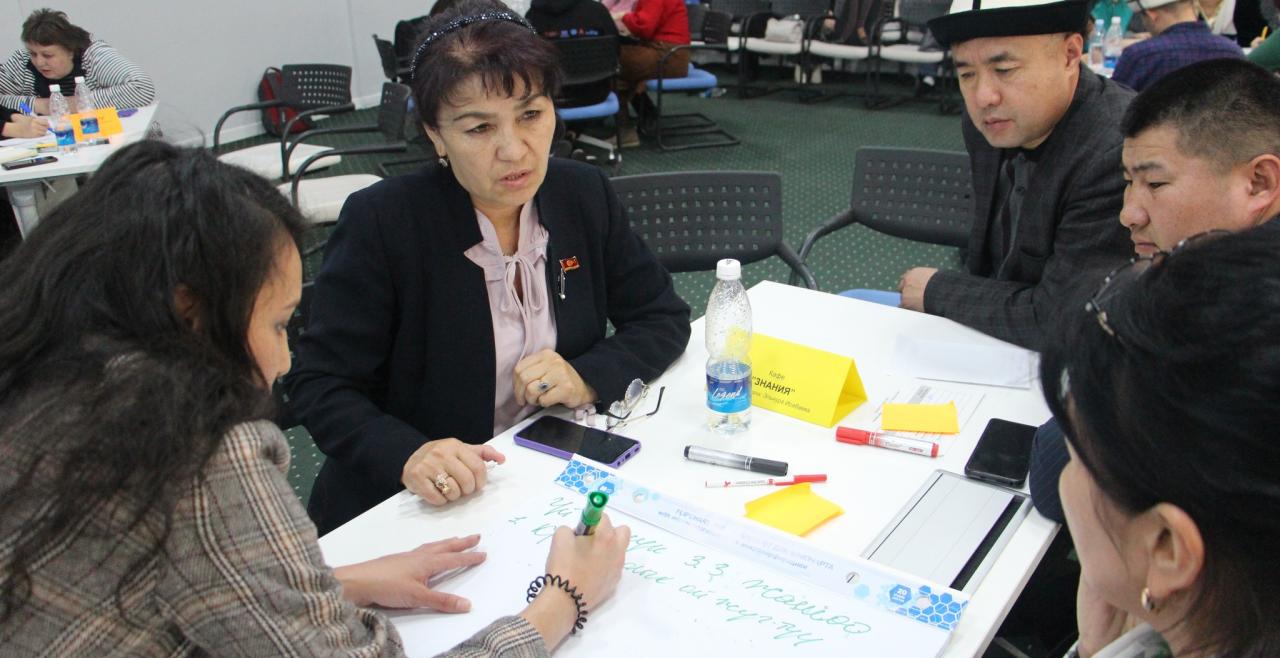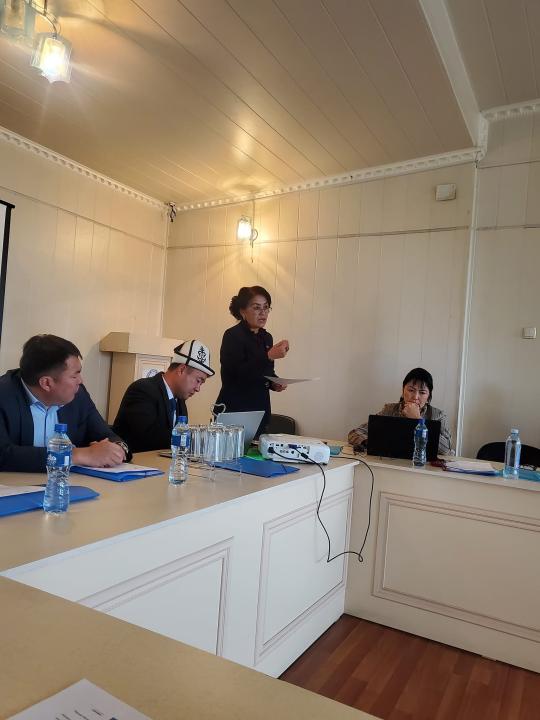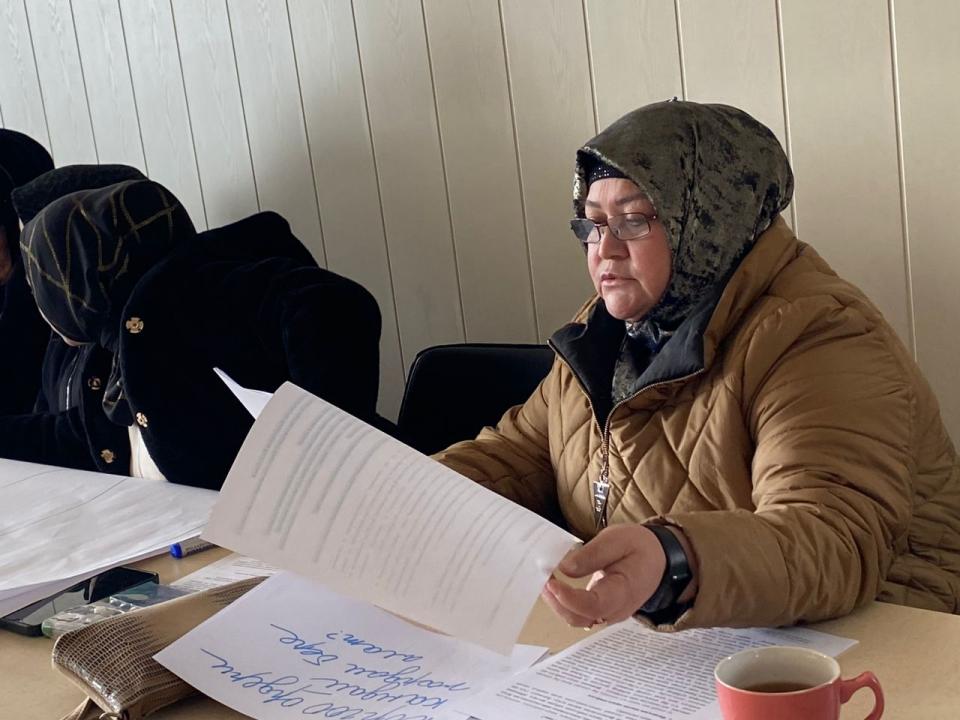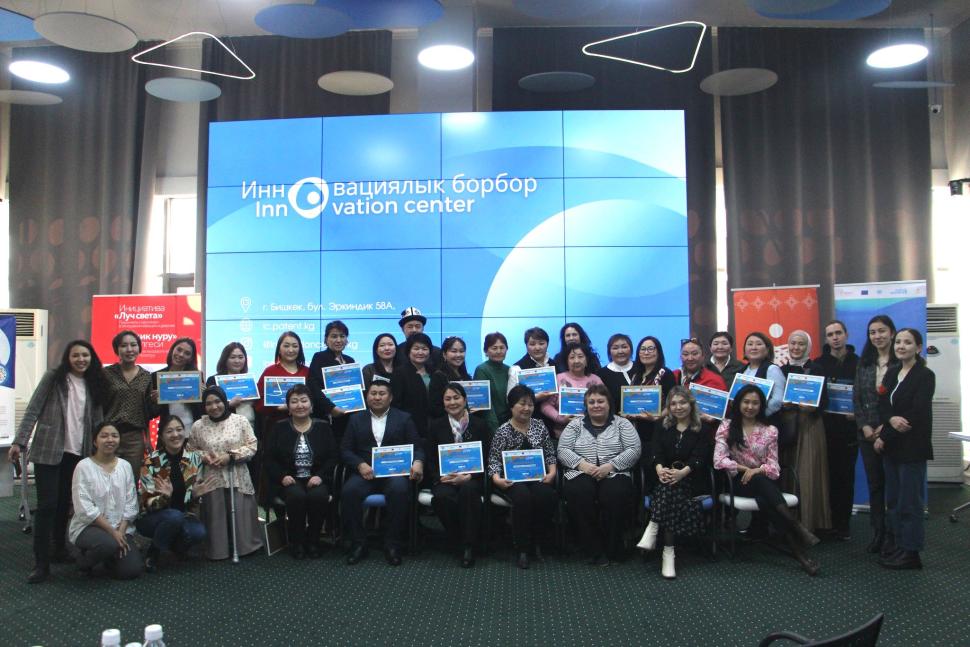Growing grassroots knowledge of women's rights in Kyrgyzstan

NURDOR, Kyrgyzstan − In the village of Nurdor, Kyrgyzstan, a remarkable initiative has taken root. Lolakhon Nishanova, chairwoman of the Local Women's Council, has embarked on a mission to eliminate violence against women and girls in her village and beyond.
In a 2012 country survey, 27 per cent of women and girls in Kyrgyzstan (aged 15-49 years) who are married or have ever been married, reported experiencing physical or sexual violence by a spouse or partner.
Successful start
In her village, where deep-rooted religious beliefs hold sway, Ms. Nishanova recognized the need for comprehensive, local information that would show the links between women's rights in the constitutional law of Kyrgyzstan, and Sharia, the religious law of Islam, given that both laws strictly prohibit any violence against women.
To that end, Ms. Nishanova took part in a Spotlight Initiative-supported training programme organized by UN Women. Here, she learned more about the issue as well as valuable practical skills to make her dream a reality. This included creative problem-solving, project planning and management, and how to pitch potential donors. Ms. Nishanova also connected with like-minded local women’s rights activists.
The course culminated in a pitching competition that resulted in Ms. Nishanova and her colleague, Urpia Usenova, winning a small grant for social innovations to end violence against women and girls.
Power through knowledge
Ms. Nishanova and Ms. Usenova created a book called “Life Without Violence”, a first- of-its-kind source of up-to-date and reliable information on the country's constitutional laws and the fundamental religious concepts of Islam specifically focused on the rights of women and girls and the prevention of gender-based violence.
This book is unique in that it is written in both Kyrgyz and Uzbek languages. The predominant population of this region is Uzbek, constituting the largest minority group in Kyrgyzstan at approximately 15 per cent of the total population. The provision of resources in both languages ensures that they are accessible to everyone.
“In a community like ours, where radical views on women were not uncommon, this initiative became a beacon of hope," says Ms. Nishanova. "Before these efforts, there were no accessible materials or sources that could enlighten the population, especially women, about their rights under both secular law and the teachings of Islam."
To bring her vision to life, Ms. Nishanova assembled a diverse team of professionals, including theologians, ethnologists, lawyers and designers. Together, they thoroughly compiled information on Kyrgyz law and Islamic canons, crafting a comprehensive guide that would serve as a foundation for information and education on women’s rights and a life free of violence.
Ms. Nishanova and Ms. Usenova, facilitated discussions that brought together members of local self-government bodies, local activists and educators, religious leaders and survivors of domestic violence to discuss human rights. The feedback received during these discussions was carefully analyzed and integrated to enhance the book's content and presentation.
Among the project's greatest achievements was securing the support of a knowledgeable theologian and establishing a strong partnership with the local authorities. With their backing, Ms. Nishanova and her team began distributing the book very quickly (more than 1000 printed copies) through local leaders and opinion influencers, schools, universities and online platforms, ensuring that its impact spreads far and wide.
Yet, Ms. Nishanova's vision for her community extends further.
“I envision the creation of a youth centre, a place where talented designers can teach drawing and pottery, imparting valuable skills to the next generation. With a dedicated space provided at local council facilities, there’s a plan to hold meetings and training sessions that could empower our children and youth, fostering their personal and professional development," she says.
In Nurdor village, Lolakhon Nishanova has ignited a spark of change that promises to illuminate the path towards a future free of gender-based violence and discrimination against women and girls.
Her tireless efforts, supported by a dedicated team and the local community, have set a precedent for positive transformation that will leave a legacy for a more just, gender-sensitive and equitable community.
By Aidai Kadyralieva



